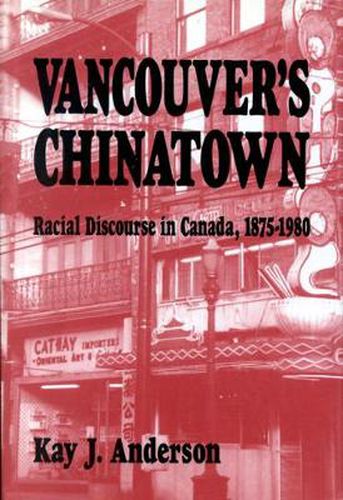Readings Newsletter
Become a Readings Member to make your shopping experience even easier.
Sign in or sign up for free!
You’re not far away from qualifying for FREE standard shipping within Australia
You’ve qualified for FREE standard shipping within Australia
The cart is loading…






Anderson charts the construction of Chinatown in the minds and streets of the white community of Vancouver over a hundred year period. She shows that Chinatown – from the negative stereotyping of the late nineteenth and early twentieth centuries to its current status as an ethnic neighbourhood – has been stamped by changing European ideologies of race and the hegemonic policies those ideas have shaped. The very existence of the district is the result of a regime of cultural domination that continues to exist today. Anderson clearly rejects the concept of race as a means of distinguishing between groups of human beings. She points out that because the implicit acceptance of public beliefs about race affects the types of questions asked by researchers, the issue of the ontological status of race is as critical for commentators on society as it is for scientists studying human variation. Anderson applies this fresh approach toward the concept of race to a critical examination of popular, media, and academic treatments of the Chinatown in Vancouver.
$9.00 standard shipping within Australia
FREE standard shipping within Australia for orders over $100.00
Express & International shipping calculated at checkout
Anderson charts the construction of Chinatown in the minds and streets of the white community of Vancouver over a hundred year period. She shows that Chinatown – from the negative stereotyping of the late nineteenth and early twentieth centuries to its current status as an ethnic neighbourhood – has been stamped by changing European ideologies of race and the hegemonic policies those ideas have shaped. The very existence of the district is the result of a regime of cultural domination that continues to exist today. Anderson clearly rejects the concept of race as a means of distinguishing between groups of human beings. She points out that because the implicit acceptance of public beliefs about race affects the types of questions asked by researchers, the issue of the ontological status of race is as critical for commentators on society as it is for scientists studying human variation. Anderson applies this fresh approach toward the concept of race to a critical examination of popular, media, and academic treatments of the Chinatown in Vancouver.